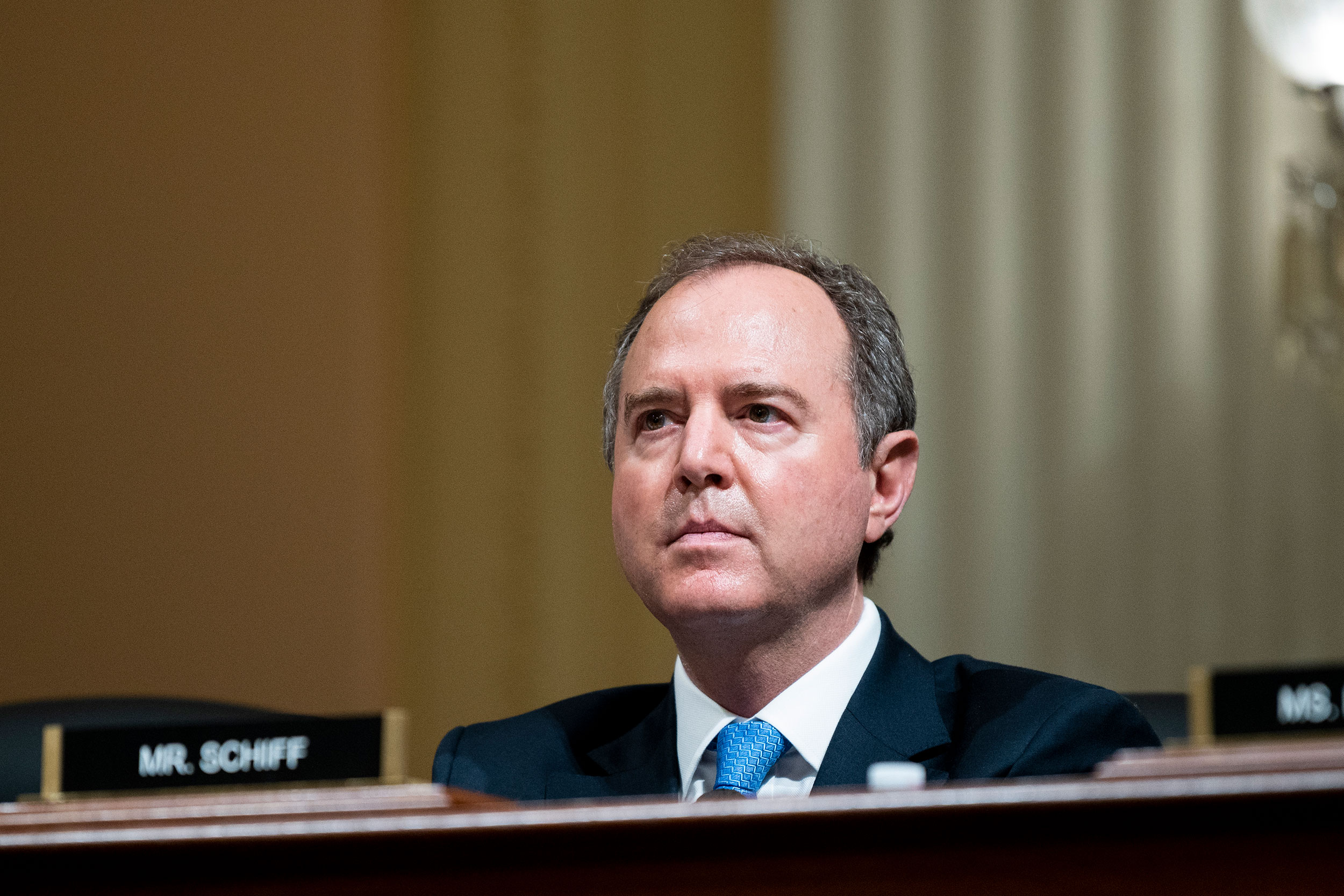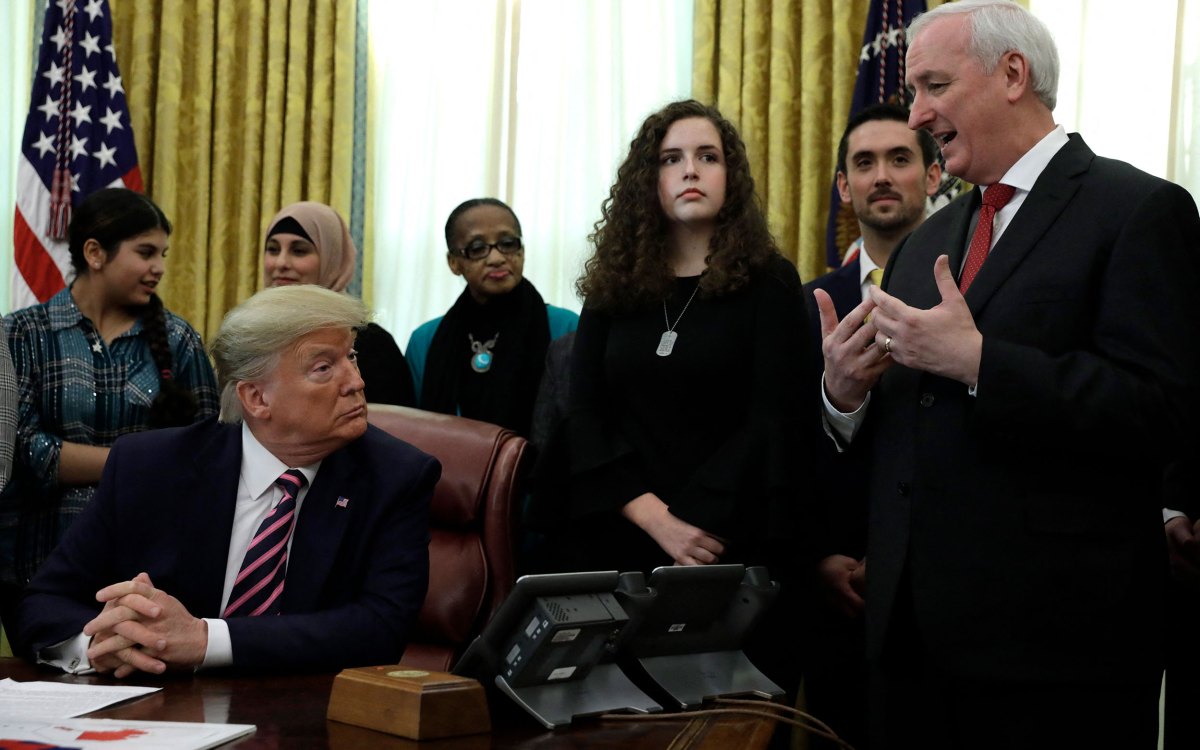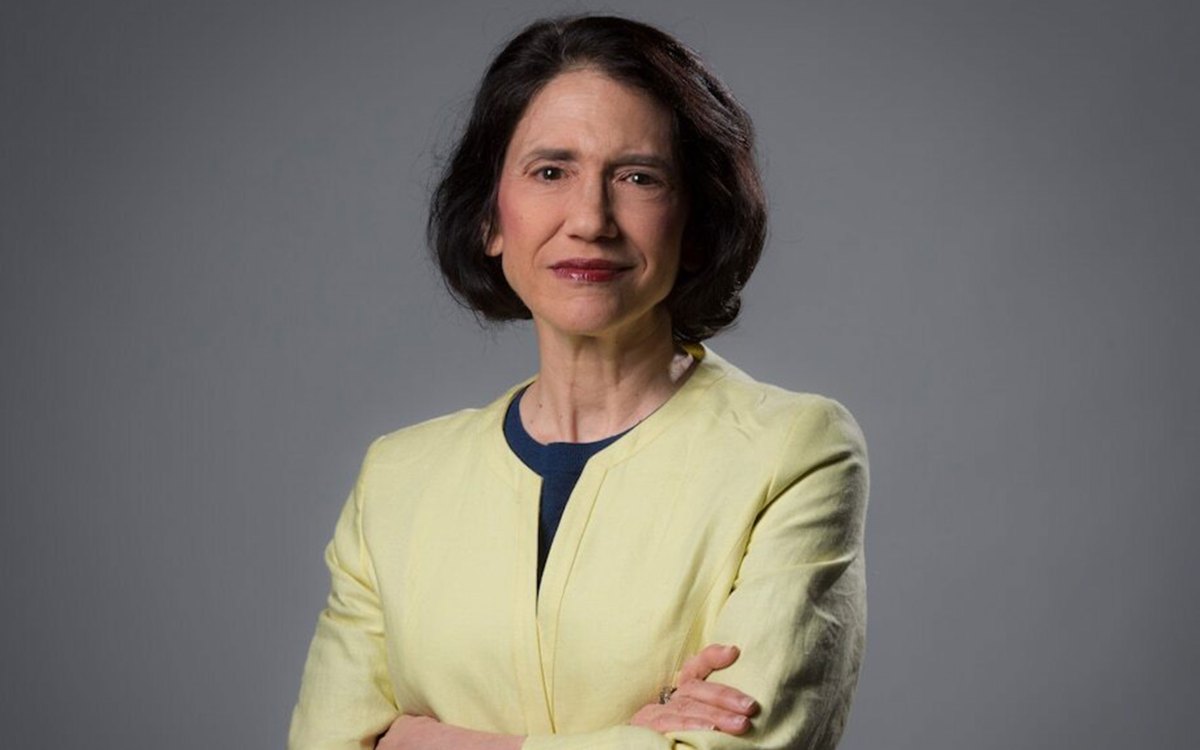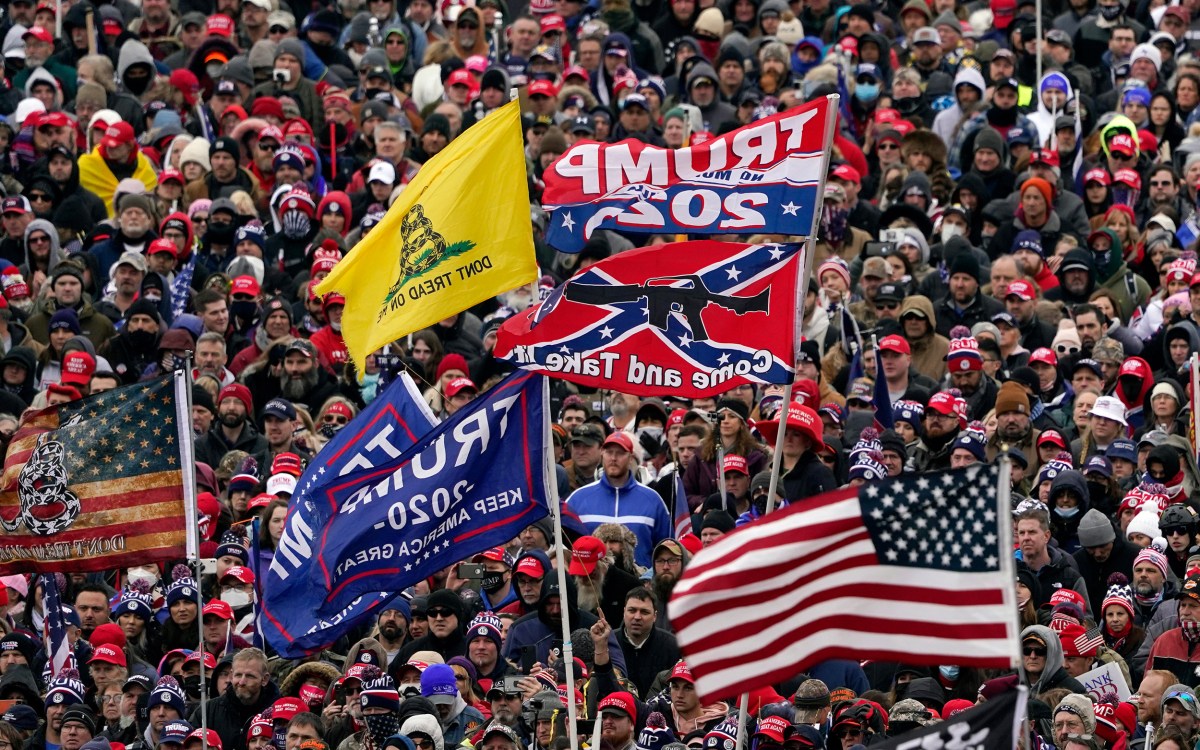
Rep. Adam Schiff sits on the House Select Committee investigating the Jan. 6 attack on the Capitol.
Photo by Bill Clark/CQ Roll Call via AP Images
Adam Schiff vows speedy, aggressive probe of Jan. 6 assault
Law School grad and Intelligence Committee chair outlines inquiry, details challenges, discusses special counsel
As a top adviser to House Speaker Nancy Pelosi (D-Calif.) and chair of the House Intelligence Committee, U.S. Rep. Adam Schiff has been a principal figure in some of the country’s most dramatic political and national security concerns, including the 2020 impeachment trial of President Donald Trump.
A Framingham, Mass., native and 1985 Harvard Law School graduate, Schiff was first elected to Congress in 2000. His leadership of the intelligence committee put him squarely in the middle of Trump’s clashes with U.S. intelligence, from the FBI investigation into Russia’s election interference to the impeachment of the president for his efforts to pressure Ukraine for political gain. The California Democrat is now a member of the House Select Committee investigating the Jan. 6 attack on the U.S. Capitol.
Out with a bestselling memoir, “Midnight in Washington: How We Almost Lost Our Democracy and Still Could,” Schiff spoke to the Gazette Tuesday about the Jan. 6 committee’s work even as new information unfolds. Interview has been edited for clarity and length.
Q&A
Adam Schiff
GAZETTE: There have been news reports this week that Republican members of Congress and former White House chief of staff Mark Meadows participated in planning meetings with rioters before Jan. 6. And Washington Post reporters Bob Woodward and Robert Costa write in their new book, “Peril,” that President Donald Trump called into a “command center” gathering at the Willard hotel on Jan. 5 that included Steve Bannon, Rudy Giuliani, Mike Flynn, and attorney John Eastman, after Vice President Mike Pence had refused to go along with a plan to stop the electoral vote certification the next day. If those reports are accurate, what are the potential legal ramifications?
SCHIFF: There have been a whole host of troubling public reports about what was going on at the Willard hotel, about the possibility of granting mass pardons to people who might be engaging in the illegal activity, and we’re going to investigate all of it and work up a report, expose any malefactors to public scrutiny. If there are prosecutable crimes, that will be up to the Justice Department to decide. But in Congress, if any misconduct involves members, we have remedies of censure around ethics violations, and expulsion from the House.
Whether it’s people working for the campaign or the administration or playing some kind of dual role, we’re going to get to the bottom of it. There’s no daylight between Democrats and Republicans on the Select Committee when it comes to our quest for the truth. We’ve cast a wide net, and we want to make sure that we’re aware of everything that went on. And we’re determined to follow the evidence wherever it leads.
GAZETTE: Does there need to be a special counsel?
SCHIFF: I haven’t opined on whether we need a special counsel or not. But I do think that the Justice Department needs to investigate any potential criminal misconduct, whether it’s by the former president or by others. I am concerned that I don’t see that going on with respect to one thing in particular, which I consider deeply troubling, and that is: the former president’s efforts to get the secretary of state of Georgia to find 11,780 votes that don’t exist, to essentially demand the secretary defraud the people of Georgia and in so doing, defraud the people of the United States. I don’t think you can ignore that. And I think if anybody else had been on the phone and recorded making that kind of demand, they might be indicted by now.
We cannot have a system where a current president can’t be prosecuted, and then, because we don’t want to look backward, the former president can’t be prosecuted; that they’re somehow too big to jail. Because, if we get to that point, then the president really does become above the law. That’s a dangerous proposition in the abstract; it’s even more dangerous, given the fact that Donald Trump is running for president again.
GAZETTE: If we take a step back, is Jan. 6 just one chapter in a much broader effort to stop Joe Biden from becoming president?
SCHIFF: It is. It begins with the effort to get Ukraine to smear Joe Biden, first by the president’s lawyer, Rudy Giuliani, and others, and then by the president directly on the phone with Ukrainian President Volodymyr Zelensky, trying to coerce Ukraine into initiating this bogus investigation of Joe Biden to help them cheat in the election. And then it continues with the withholding of military aid to further extort Ukraine into helping his misconduct succeed.
The failure of that led to other ways to cheat in the election, by first trying to persuade the country that any votes that came in after the polls were closed were somehow illegitimate because Trump felt the absentee vote was going to go against him. Then, all the bogus litigation and all the fraudulent filings in court. And when that didn’t succeed, efforts to corral and corrupt local elections officials, and then state legislators, and secretaries of state. And then, finally, that violent assault on the Capitol.
But even then, people need to understand that Jan. 6 was not the end; Jan. 6 was just a violent wave point because the efforts to use the “Big Lie” continue. And it continues to usher in a new generation of Jim Crow laws around the country and to strip independent elections officials of their duties and give them over to partisan boards and partisan legislatures.
It seems what the former president learned from the failed insurrection was that next time he needed to be sure that he could find the secretary of state who would find 11,780 votes. If Georgia Secretary of State Brad Raffensperger wouldn’t do it, he seems intent on replacing him and every other one around the country with someone who will.
GAZETTE: The House voted to hold Trump adviser Steve Bannon in contempt for refusing to turn over documents or appear for a deposition earlier this month. Bannon cited the former president’s likely invocation of executive privilege as his rationale. What level of cooperation is the committee receiving from the others who’ve been served, particularly former chief of staff Mark Meadows, advisers Dan Scavino and Kash Patel, who missed their subpoena deadlines, but whom the committee said it was “engaging” with, or can’t you say?
SCHIFF: I can’t say. I can say that there are a great number of people who are cooperating with us, who are providing us important information. With respect to particular witnesses, like the four that we subpoenaed together, they are engaging in different ways. Some may lead to successful testimony, and others we may need to pursue the same course we did with Steve Bannon. But I can tell you this: We’re not going to wait forever. We moved with alacrity when it came to Steve Bannon, and we’re going to move quickly with those we determine are deliberately noncooperative.
GAZETTE: What will success look like for this committee if, after hearings and a report is issued even with damning evidence, you’re still not able to reach or convince 35-40 percent of the country?
SCHIFF: We are going to proceed the way we have other investigations in the last few years, which is you begin by doing private interviews and depositions, and then you move to doing public hearings to help inform the public of what happened. Some of that you can do concurrently, like we did with the hearing with the four police officers.
Are there going to be some people whom we will not be able to reach even when presented with such obvious fact, as those police officers testified? It was no honeymoon; it was no typical tourist day. It was a brutal assault in which they were beaten and gouged. Will some people listen to that, or not listen to it and refuse to be moved? Yes. Now, because of Fox News and Newsmax and OAN, there’s an entire alternate, non-factual world for people to live in. I’m convinced that if Richard Nixon had had Fox News, he would have never been forced to leave the office. But what we can hope for in the select committee is to reach all those with an open mind, of which there are still many millions of Americans, and to do the most thorough job we can, and to write the most credible report we can. That’s all we can do, and hope that it’s enough to open people’s eyes to the threat.







